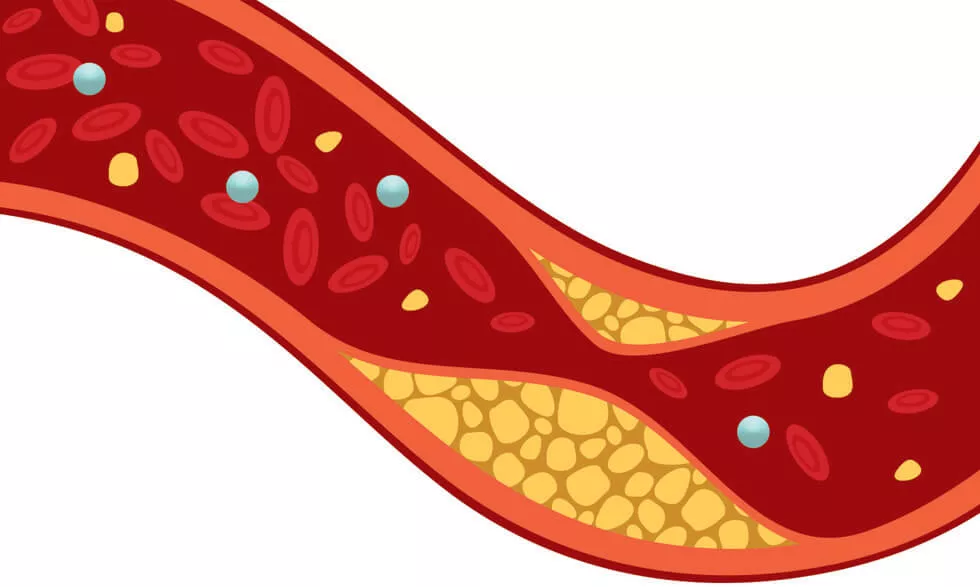Cholesterol management is a crucial aspect of maintaining overall heart health. High levels of cholesterol, particularly LDL cholesterol (often referred to as “bad” cholesterol), can lead to plaque buildup in arteries, increasing the risk of heart disease and stroke. While medications like statins are commonly prescribed to lower cholesterol, lifestyle changes play a pivotal role in achieving and maintaining healthy cholesterol levels. In this article, we will delve into the top 5 lifestyle changes that can significantly improve your cholesterol profile.
Top 5 Lifestyle Changes to Improve Your Cholesterol
1. Healthy Diet for Cholesterol Control
One of the most effective ways to manage cholesterol is through a heart-healthy diet. Focus on incorporating foods that are low in saturated fats, trans fats, and cholesterol. Opt for lean proteins such as fish, poultry without skin, legumes, and tofu.
Include plenty of fruits, vegetables, whole grains, and nuts in your diet, as they are rich in fiber and can help lower LDL cholesterol levels.
see also: Does Walking Help Lower Cholesterol
Specific foods known for their cholesterol-lowering properties include:
Oats and Barley: These whole grains contain soluble fiber, which helps reduce LDL cholesterol.
Fatty Fish: Salmon, mackerel, trout, and sardines are rich in omega-3 fatty acids, which can lower triglycerides and reduce the risk of heart disease.
Nuts: Almonds, walnuts, and peanuts are high in monounsaturated fats, fiber, and plant sterols, all of which contribute to improved cholesterol levels.
Olive Oil: Replace saturated fats with olive oil, which is a healthier source of fat and can help lower LDL cholesterol.
Legumes: Beans, lentils, and chickpeas are excellent sources of soluble fiber and plant-based protein, aiding in cholesterol reduction.
Additionally, limit your intake of processed foods, sugary beverages, and excessive alcohol, as they can contribute to elevated cholesterol levels.
2. Regular Physical Activity
Engaging in regular physical activity is another key component of cholesterol management. Aim for at least 150 minutes of moderate-intensity exercise or 75 minutes of vigorous-intensity exercise per week, as recommended by health guidelines.
Physical activity not only helps lower LDL cholesterol but also raises HDL cholesterol (the “good” cholesterol) levels.
Consider incorporating the following types of exercises into your routine:
Cardiovascular Exercises: Activities such as brisk walking, jogging, cycling, swimming, and dancing can improve cardiovascular health and contribute to cholesterol control.
Strength Training: Include strength training exercises using weights or resistance bands to build muscle mass, which can enhance metabolism and overall heart health.
Yoga and Stretching: Practicing yoga or stretching exercises can reduce stress, improve flexibility, and promote relaxation, all of which are beneficial for heart health.
3. Maintain a Healthy Weight
Maintaining a healthy weight is essential for cholesterol management and overall well-being. Excess body weight, especially around the abdomen, is associated with higher LDL cholesterol levels and increased cardiovascular risk. Aim for a body mass index (BMI) within the normal range (18.5 to 24.9) and waist circumference below 40 inches for men and 35 inches for women.
To achieve and maintain a healthy weight, focus on:
Balanced Diet: Follow a nutritious, calorie-controlled diet that includes a variety of foods from all food groups in appropriate portions.
Portion Control: Be mindful of portion sizes and avoid overeating, especially high-calorie, high-fat foods.
Regular Exercise: Combine cardiovascular workouts with strength training to burn calories, build lean muscle, and improve metabolism.
Healthy Sleep Habits: Prioritize adequate sleep (7-9 hours per night) to support hormone regulation, appetite control, and overall metabolic health.
4. Quit Smoking and Limit Alcohol Consumption
Smoking and excessive alcohol consumption can have detrimental effects on cholesterol levels and cardiovascular health.
Smoking not only lowers HDL cholesterol but also damages blood vessel walls, promoting plaque buildup and increasing the risk of atherosclerosis and heart disease. Similarly, excessive alcohol intake can raise triglyceride levels and contribute to weight gain and liver damage.
If you smoke, seek support and resources to quit smoking. Enlist the help of healthcare professionals, join smoking cessation programs, and utilize nicotine replacement therapies if needed. Additionally, limit alcohol intake to moderate levels—up to one drink per day for women and up to two drinks per day for men, as recommended by health guidelines.
5. Manage Stress and Prioritize Mental Well-being
Chronic stress and poor mental well-being can impact cholesterol levels and overall heart health. Stressful situations and emotions can trigger unhealthy behaviors such as overeating, poor food choices, smoking, and lack of exercise, all of which can contribute to elevated cholesterol levels and increased cardiovascular risk.
To manage stress and prioritize mental well-being:
Practice Relaxation Techniques: Incorporate relaxation techniques such as deep breathing, meditation, mindfulness, and progressive muscle relaxation into your daily routine to reduce stress levels and promote calmness.
Engage in Enjoyable Activities: Participate in activities that bring joy and relaxation, such as hobbies, socializing with loved ones, spending time in nature, listening to music, or pursuing creative outlets.
Seek Support: Reach out to supportive friends, family members, or mental health professionals if you’re experiencing chronic stress, anxiety, or depression. Counseling, therapy, and support groups can provide valuable coping strategies and emotional support.
Conclution
By implementing these top 5 lifestyle changes—adopting a healthy diet, engaging in regular physical activity, maintaining a healthy weight, quitting smoking, limiting alcohol consumption, and managing stress—you can significantly improve your cholesterol profile, enhance overall heart health, and reduce the risk of cardiovascular disease. Prioritize these lifestyle modifications as part of a comprehensive approach to cholesterol management and consult with healthcare professionals for personalized guidance and support.


